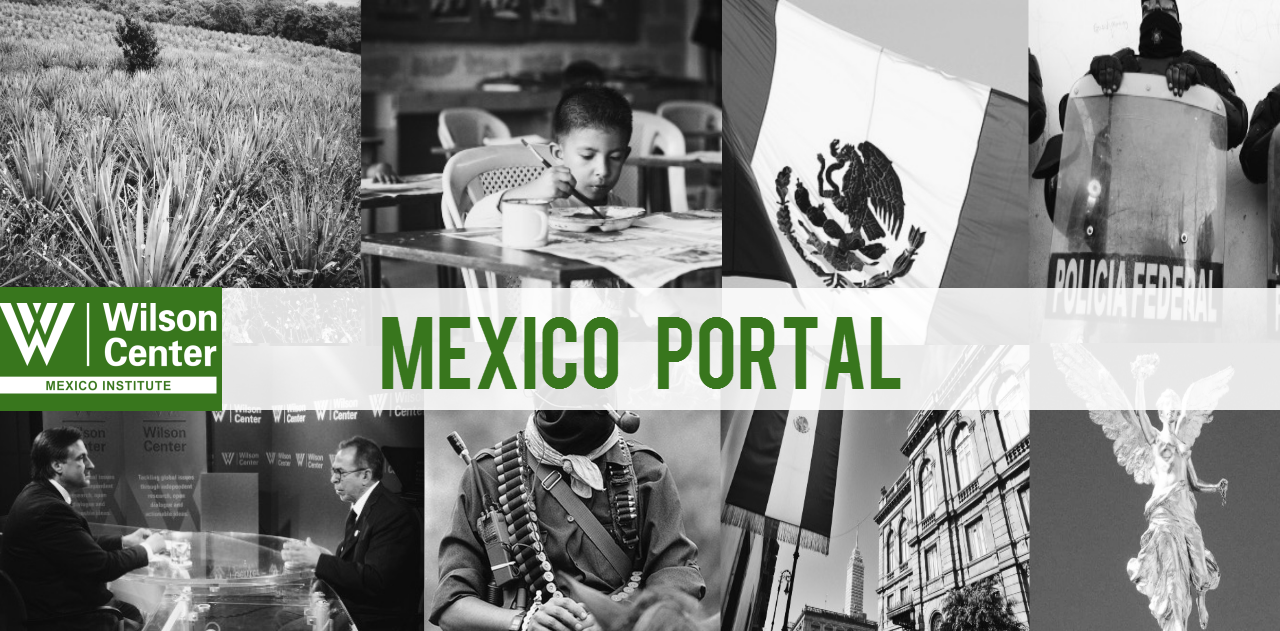5/17/2017 The Expert Take, Mexico Institute
 By Eric L. Olson and Gina Hinojosa
By Eric L. Olson and Gina Hinojosa
In yet another disturbing attack against freedom of expression in Mexico, one of the country’s most celebrated reporters, Javier Valdez Cárdenas, was shot dead this week in his hometown of Culiacán, Sinaloa. The fifth journalist to be murdered in Mexico this year, Valdez was pulled from his car and shot multiple times by an unidentified assailant around noon on May 15, according to national newspaper La Jornada, leaving the country to grieve the loss, again, of courageous journalist and rights defenders.
A talented and undeniably passionate reporter, Valdez won numerous international awards for his work. In 2011, the publication he co-founded, RioDoce, earned the prestigious Maria Moors Cabot Prize from the Columbia Graduate School of Journalism. In the same year, the Committee to Protect Journalists (CPJ) awarded Valdez the 2011 International Press Freedom Award for his fearless coverage of drug trafficking, organized crime, and corruption. “In a country where widespread self-censorship is the consequence of violence by drug syndicates and criminal gangs, Valdez still covers sensitive issues,” wrote CPJ in its announcement of the award.
The words Valdez delivered upon receiving the CPJ award in New York are heart-wrenching. They underscore the horrors suffered by Mexicans living in areas ravaged by the country’s ongoing struggle against organized crime and the persistent challenges faced by journalists brave enough to report from the front lines of this struggle:
“Where I work, Culiacán, in the state of Sinaloa, Mexico, it is dangerous to be alive, and to do journalism is to walk on an invisible line drawn by the bad guys–who are in drug trafficking and in the government–in a field strewn with explosives. This is what most of the country is living through. One must protect oneself from everything and everyone, and there do not seem to be options or salvation, and often there is no one to turn to.”
While well aware of the risks, Valdez dedicated his life to addressing these pressing issues. In 2003, he co-founded the Sinaloa-based crime and corruption-focused publication RioDoce. At the time of the publication’s founding, the state government was believed to control most of Sinaloa’s media, and Valdez saw the need to provide more honest coverage of organized crime’s toll on Mexican society and governance.
In 2011, Valdez spoke at the Wilson Center about his work at a Mexico Institute event in the midst of Mexico’s rising homicide rates, discussing the risks faced by journalists reporting on organized crime. Widely considered the height of Mexico’s drug war, 2011 was the country’s most violent year on record, with nearly 23,000 homicides documented nationwide by the Mexican National Security System (SNSP). When asked by the Mexico Institute’s Eric L. Olson about why he continued reporting on such dangerous topics in such a hostile context, Valdez said, “The other option is to stay quiet and to turn a blind eye…I believe everyone must assume the responsibility given to them.”
The broader picture
Through his activism and dedicated reporting, Valdez called attention to Mexico’s incessant struggle to put an end to violence against journalists. Press freedom watchdog Reporters without Borders (RSF) consistently ranks Mexico the most dangerous country in the Western Hemisphere for the media, and in its 2017 World Press Freedom Index, RSF declared Mexico the third deadliest country in the world for the press, behind only Syria and Afghanistan. According to international human rights organization Article 19, 105 journalists have been murdered in Mexico since 2000, and in 2016 alone, the organization documented 426 total acts of aggression against the press, including 11 homicides. The most common types of attacks recorded by Article 19 last year included physical assault, intimidation, and threats.
Read more…




 A finding by a Mexican airline that pilot error was to blame for a deadly passenger jet crash in May was dismissed as premature Tuesday by the Cuban authorities charged with determining the cause of the accident.
A finding by a Mexican airline that pilot error was to blame for a deadly passenger jet crash in May was dismissed as premature Tuesday by the Cuban authorities charged with determining the cause of the accident. Rescuers were searching on Wednesday for seven workers who went missing in at a gold and silver mine in northern Mexico after a dam filled with liquid waste collapsed, authorities said.
Rescuers were searching on Wednesday for seven workers who went missing in at a gold and silver mine in northern Mexico after a dam filled with liquid waste collapsed, authorities said. As negotiators from the United States, Mexico, and Canada prepare to begin talks on a renegotiated NAFTA agreement, this is an opportune moment to think about how to strengthen trilateral oversight in the important areas of labor and environmental policy. The Trump Administration published its negotiating objectives in July, and they included the aim to strengthen both labor and environmental oversight within NAFTA. Clear lessons can be drawn from the NAFTA experience about what worked and what did not, and how civil society participated and evolved.
As negotiators from the United States, Mexico, and Canada prepare to begin talks on a renegotiated NAFTA agreement, this is an opportune moment to think about how to strengthen trilateral oversight in the important areas of labor and environmental policy. The Trump Administration published its negotiating objectives in July, and they included the aim to strengthen both labor and environmental oversight within NAFTA. Clear lessons can be drawn from the NAFTA experience about what worked and what did not, and how civil society participated and evolved. By Eric L. Olson and Gina Hinojosa
By Eric L. Olson and Gina Hinojosa